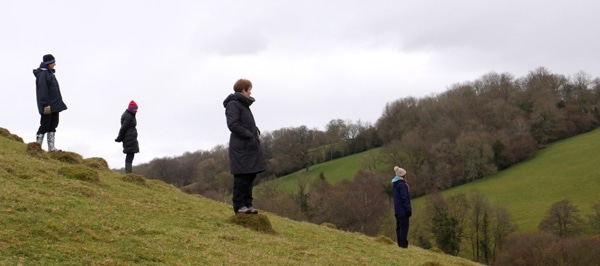Enlightenment is not that difficult to find. In fact, the real trick is just to let go enough to see what’s already there. Not that letting go, fully, to the point where there is no ‘you’ left, is straightforward; it takes practice and preparation. But it is, and must be, simple.
If it seems like I’m speaking in riddles it’s because this path is riddled with paradox. If you seek enlightenment, it will not be found; you just prepare, relax, and let go into the abyss. Try harder and, like holding wet soap, it will slip away.
So when the experience of the empty fullness at the heart of your being appears, it may also slip away again just as fast. The instant that we recognise, name and celebrate it, it is gone. To know it is a significant stage on the path; to stay with it, rest there, and let it walk beside us as we live our life, takes even more skill and practice.
I know quite a few people who have had direct experience of this realisation. None of us are that special. And all of us still suffer. The stories of instant enlightenment on hearing the dharma are un-useful myths.
There is so much history, our own and inherited, embedded in our neural pathways and bone marrow, that our sense of self is too strong to shake off in one experience. Our identity is vulnerable; easily dented. As long as we see things that happen as some kind of positive or negative for our Self, we will suffer. The proof of this is that if you can rest in the empty space for a second or two, there is clearly no self there that can be dented; there is no thing that can create a dent because there is nothing to dent.
So we are who we are, and that is not easy to shift. We may chip away, ever so gently, at this construction called Self, but it’s like chipping away at a concrete bunker with a teaspoon. One lifetime is unlikely to be enough.
So where does this leave us? With the wonderful knowledge that our sense of self is a fiction, yet unable to let that knowledge overcome day to day assaults. On-going practice is a good idea, because the dents become less pronounced, and they last for less time, but we remain dentable.
Our reaction to this might be frustration (‘Oh no, here it is again’), self-directed anger (‘I should be better at this by now’), depression (‘I can’t do anything about this’), or even greed (‘I want it, now’). When we see others suffer, and we know that they should know that it’s not real, we might judge them in some negative way (‘That silly man is doing it again’).
So until we crack it, for good, what can we do?
This is where another aspect of the emptiness comes into play: compassion. Tune-in perfectly to the sense of this core, and it is thoroughly saturated with goodness; there is a quality of positivity and acceptance, and a complete lack of anything unwholesome. It is imbued with patience and kind intent.
It is more than empathy, which is a starting point; it has change in its nature. Change, or action, with kind intent = compassion.
If we can allow this natural capacity for compassion – to self, others, slugs, paving slabs – to be our guiding principle, it’s like a balm. Rub it in and everything softens. It will not protect against insults to the Self, but it means that the blows can be absorbed, dissipated, and that recovery is quicker. We can also offer the balm freely to anyone else who needs it.
